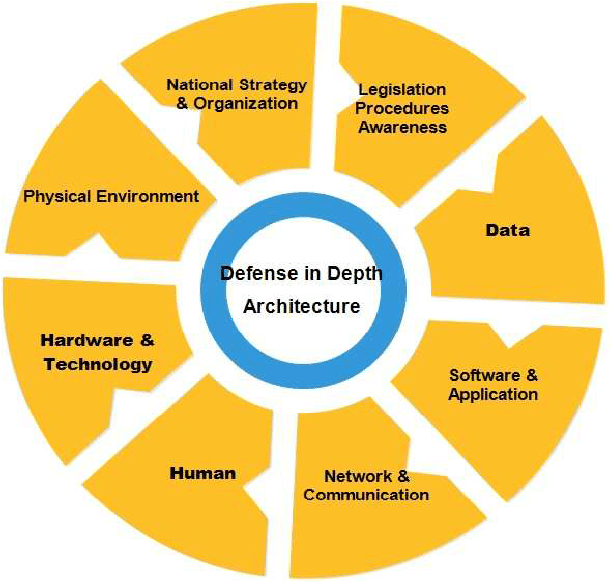What is Cybersecurity why do we need it?
What is CyberSecurity?
Cybersecurity is a set of processes, tools, and frameworks that protect networks, devices, programs, and data against cyberattacks. Cyber criminals carry out such attacks to gain unauthorized access to computer systems, disrupt business operations, modify, manipulate or steal data, engage in industrial espionage or blackmail the victim.thats what is meant by what is cybersecurity
Cyberattacks now affect 1/3 of Americans each year, with one attack every 39 seconds. These attacks often cause financial or reputational damage, harm IT infrastructure, and result in regulatory fines. To protect their valuable assets and data from attackers, organizations and individuals need strong cybersecurity.
Why Do We Need Cybersecurity?
In 2021, cybercrime cost the world $6 trillion. By 2025, this cost will reach $10.5 trillion. Cybercrime is an increasingly serious problem and to tackle it, strengthening cyber security is essential.
Individuals, governments, for-profit businesses, nonprofits, and educational institutions are all at risk of cyberattacks and data breaches. In the future, the number of attacks will increase as digital technology evolves, the number of devices and users increases, global supply chains become more complex, and data becomes more important. in “Digital Economy”. To minimize the risk of attacks and secure systems and data, strengthening cybersecurity will be important.
What is enterprise network security?
According to IBM, 77% of organizations do not have a security incident response plan, and some companies take more than six months before detecting a breach. During this time, attackers can do everything from stealing data and conducting surveillance to sabotaging systems and demanding ransom.
Enterprise cybersecurity is a more complex approach than traditional cybersecurity and involves protecting all of a company’s assets, both on-premises and in the cloud.
Difference Between Cybersecurity and Information Security
What is Cybersecurity ? , Although the terms cybersecurity and information security (IS) are often used interchangeably, they are not the same because each refers to different types of security. The terms IT security and cybersecurity are also frequently confused.
IT security involves protecting IT assets, such as endpoints, databases, servers, networks and data, from unauthorized access to prevent misuse or theft . This is a global process that involves how a company’s data is processed on a daily basis. These attacks can come from inside or outside an organization. Information security refers to protecting the confidentiality, integrity, and availability of data by preventing unauthorized access, modification, manipulation, or destruction.
Cybersecurity is a “subset” of IT security. This is intended to protect assets from hacking or cyber attacks, i.e. threats originating from or through the Internet.
Defense-in-Depth (DID) CYBERSECURITY
What is cybersecurity? No a single cybersecurity method or tool that can protect against each type of attack. This is why defense-in-depth (DiD) cybersecurity is important. With DiD – also known as the “castle approach” to cybersecurity – several defense mechanisms are deployed to protect company assets. This multi-layered approach increases overall security. Additionally, if one mechanism fails, the other mechanisms remain active to prevent or prevent cyber attacks.

Implementation of Defense-in-Depth
Perimeter security
Establish a solid perimeter defense system to protect against external threats. This may include firewalls, intrusion detection systems, and intrusion prevention systems to filter and monitor incoming and outgoing traffic.
Network Security
Protect your internal network with network segmentation, VLANs, and network access control to limit lateral movement of threats within the network.
Endpoint security
Secure individual devices such as computers, smartphones, and servers with antivirus software, endpoint detection and response (EDR) tools, and regular patch management.
User authentication and access control
Implement strong authentication mechanisms such as multi-factor authentication (MFA) and access controls to ensure that only authorized users have access to critical systems and data.
Data encrypt
Encrypt sensitive data when storing and transmitting. This ensures that even if an attacker gains access to the data, the data remains incomprehensible without the decryption key.
Incident response
Develop an incident response plan to quickly and effectively respond to security incidents. This plan must describe containment, eradication, and recovery procedures.
What is CyberSecurity in Business?
In today’s digital age, the importance of cybersecurity for businesses is undeniable. With increasing dependence on technology and the Internet, cyber threats are becoming more sophisticated and frequent, posing significant risks to businesses of all sizes. Here are some key reasons why cybersecurity is important for businesses:
Protect sensitive data
One of the main reasons businesses should invest in cybersecurity is to protect their sensitive data. This includes customer information, financial records and proprietary intellectual property. A cyber attack that results in a data breach can have serious consequences, including financial loss and reputational damage. Maintain business operations
A cyber attack can disrupt your business operations, causing downtime and lost productivity. Ensuring your business has a strong cybersecurity strategy will help maintain business continuity and minimize the risk of costly outages.
Regulatory compliance
Businesses are subject to various regulations that require them to maintain specific security standards to protect customer data. Failure to comply with these regulations can result in heavy fines and penalties. Investing in cybersecurity helps businesses comply with these regulations, avoiding potential legal issues. Build trust with customers
Customers are increasingly aware of the importance of protecting their data. By demonstrating a strong commitment to cybersecurity, businesses can build trust with customers, thereby strengthening loyalty and long-term relationships.
Always stay ahead of the competition
Businesses that prioritize cybersecurity are better positioned to stay ahead of their competitors in the market. By implementing strong security measures, businesses can minimize the risk of cyber threats and focus on their core competencies, giving them a competitive advantage.
Now we have came to the conclusion that what is cybersecurity? why we need it ?

Hi there, I discovered your website via Google even as looking for a related subject, your web site got here up, it appears to be like good. I have bookmarked it in my google bookmarks.